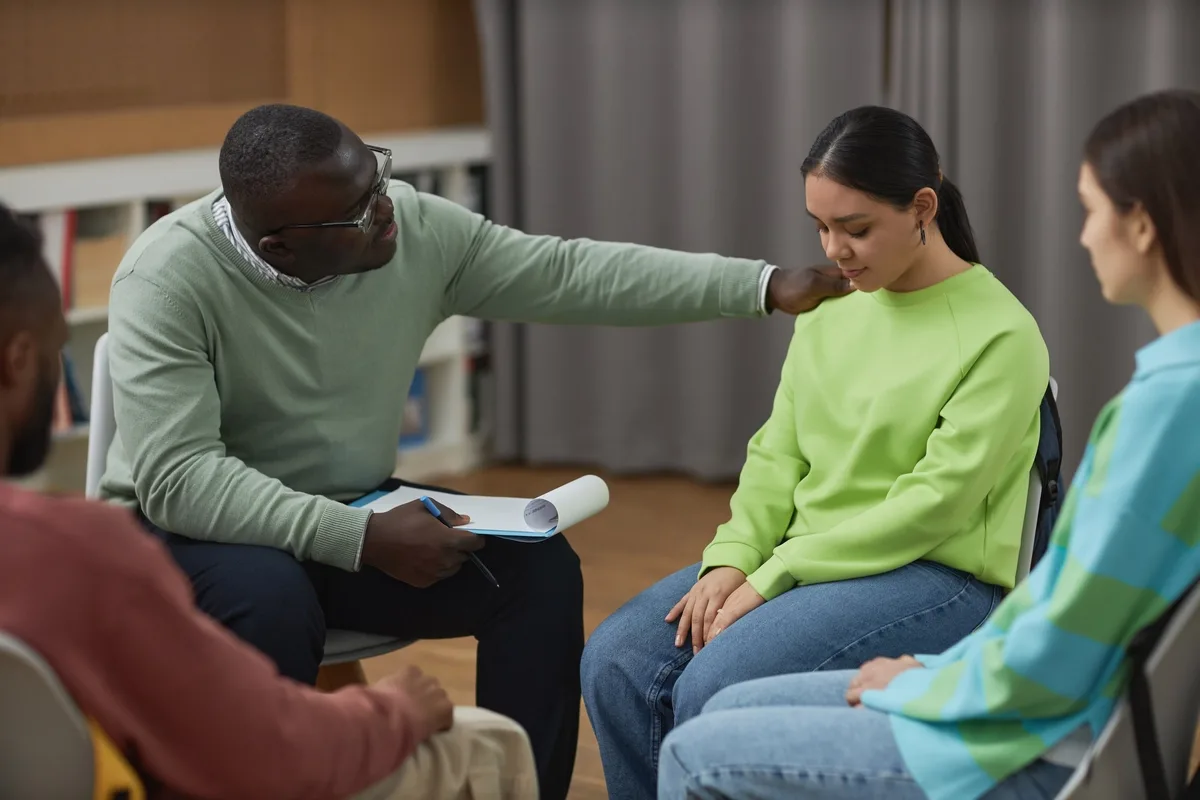24/7 Helpline:
(866) 899-221924/7 Helpline:
(866) 899-2219
Learn more about PTSD Treatment centers in Stevenson Ranch
PTSD Treatment in Other Cities

Other Insurance Options

Choice Care Network

AllWell

Molina Healthcare

Group Health Incorporated

Anthem

Amerigroup

Evernorth

Private insurance

Providence

Optima

Aetna

CareSource

Kaiser Permanente

MHNNet Behavioral Health

WellPoint

Medical Mutual of Ohio

Coventry Health Care

BlueCross

Health Net

Horizon Healthcare Service











